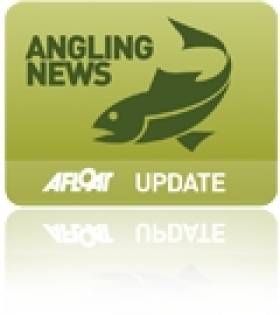Displaying items by tag: Galway Aquarium
Fly tying to be Centrepiece of New Angling Exhibition
Most of the top names in fly tying and angling will be in Galway this November for the inaugural Irish Fly Fair say Galway organisers. Well known game angler Stevie Munn will be in town in partnership with Irish Angler magazine. The event sponsored by Inland Fisheries Ireland has succeeded in attracting many of the world's best fly tyers and anglers – including the top Irish ones – to what promises to be a great weekend for anglers and their families.
Centerpiece of the event will be the fly tying area, where over 30 world class experts will give demonstrations of their art and skill, as well as lessons in the techniques of constructing Salmon, Trout, Pike and Saltwater flies.
In addition there will be casting demonstrations by World renowned Fly Casters and also instruction from fully qualified instructors.
For those looking for Christmas gifts, there will be a wide range of tackle and other retailers with lots of bargains on offer.
There will be lots for the family too. For the first time ever in Ireland French firm Scatri will be letting people practice their angling skills on their range of fishing simulators. Galway Aquarium will allow visitors to see the wide range of fish and other creatures that live in our waters up close and personal and also an expert on entomology will be there. Galway Bay FM will broadcast live from the event on Saturday. Chef Chris Sanford will prepare a number of haddock recipes throughout the weekend, to complement Bord Bia's current promotional campaign to increase the awareness, and Irish consumer's consumption, of haddock.
More information HERE





























































